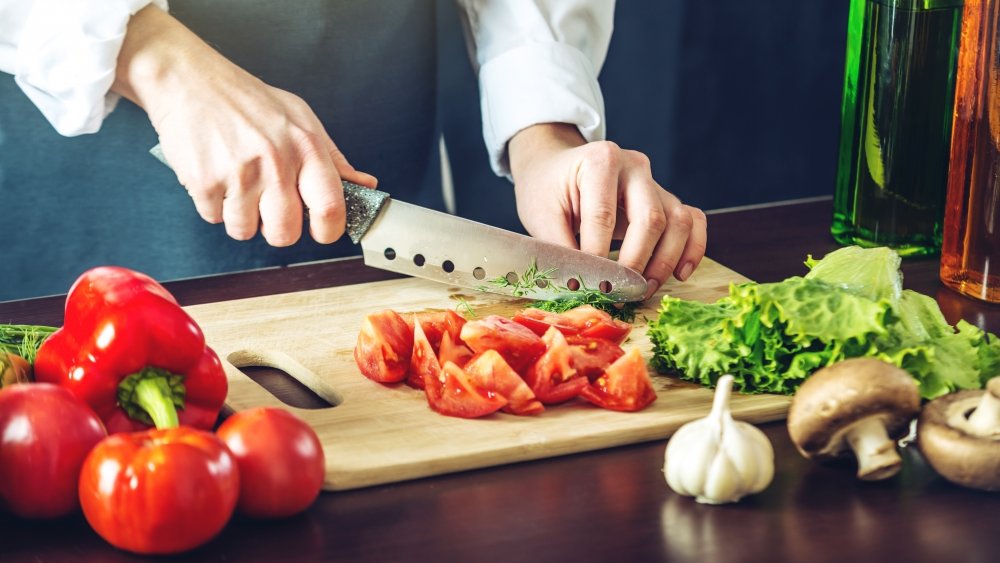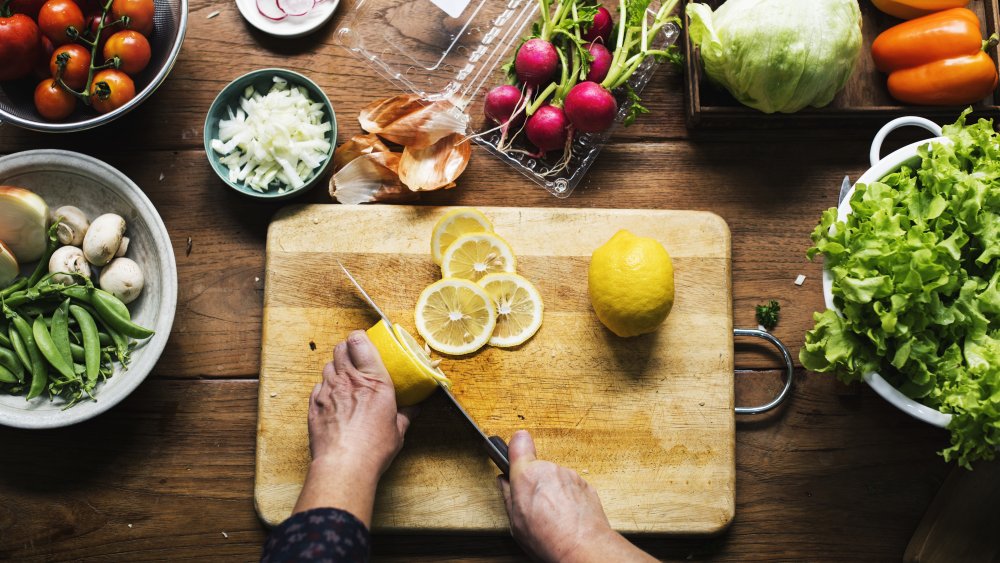Here's What You Need To Do After Getting A New Kitchen Knife
Getting a new kitchen knife is exciting, and sometimes expensive. Really good knives are some of a chef's best tools, and good knives are often quite an investment — but the ability to easily slice through almost any kind of food with the appropriate knife is invaluable. With such an important kitchen tool, it is vital to do some research to ensure you take the best care of them that you possibly can.
There are plenty of things you should not do to care for your knives, like swipe them through ceramic sharpeners, wash them in the dishwasher, or as a multitool for opening anything. Knives should also be kept to uses that they are suited to, so avoid slicing through just any food because the knives are sharp. Just as there are plenty of things you should not do, there are also a few important steps you need to take to care for your kitchen knives when you first get them (via Kitchen Provisions).
Grab some citrus and start slicing with your new kitchen knife
Clearly, the very first thing you should do with your new kitchen knife is wash it. While it might sound obvious, it's an important step to ensure the knife's cleanliness before using it on the food you are about to consume. Don't assume that a packaged knife is ready to go in the kitchen (via The Kitchn).
With that very first step out of the way, the very next thing you should do with you cleaned knife is slice through some citrus. Lemons and limes work best because most people have them on hand. These smaller types of citrus are also the perfect size to cut with almost any kind of new knife — even a paring knife.
The biggest advantage of slicing through citrus is that lemons, limes, grapefruits, oranges, and more have a variety of textures that will help you to learn and understand how your new kitchen knife handles. It will also help you know how sharp the knife is. The skin or peel tends to be tough while the inner flesh of the fruit is delicate and tender. That's why it helps provide a range for you to understand the knife's sharpness.

